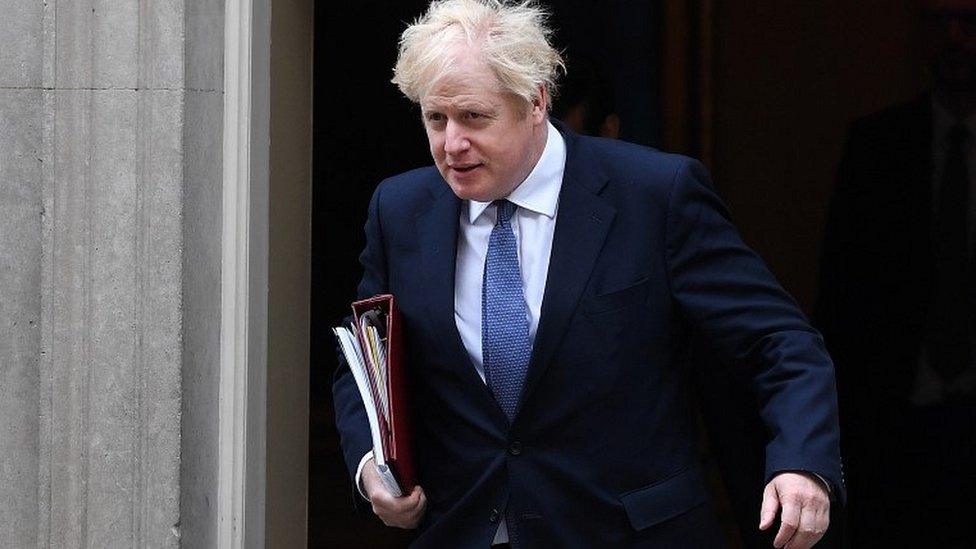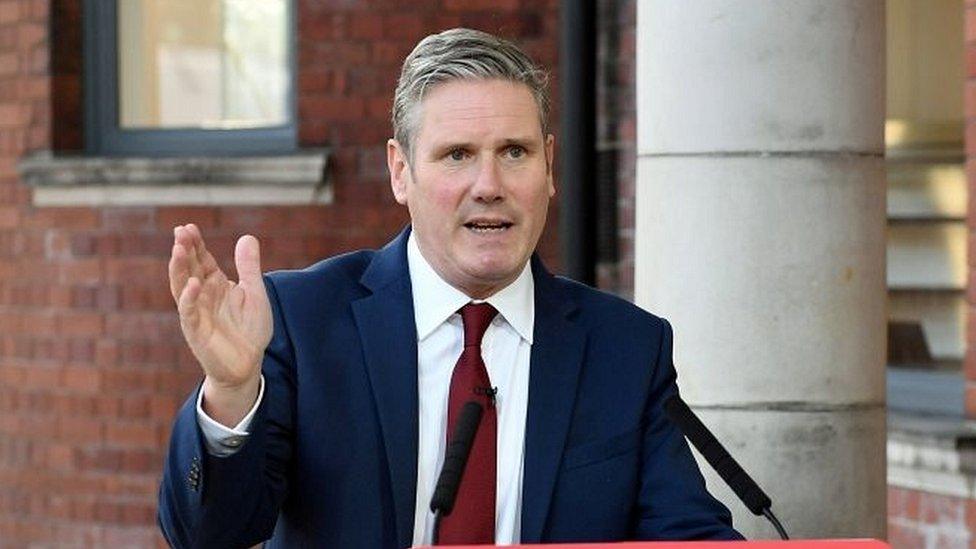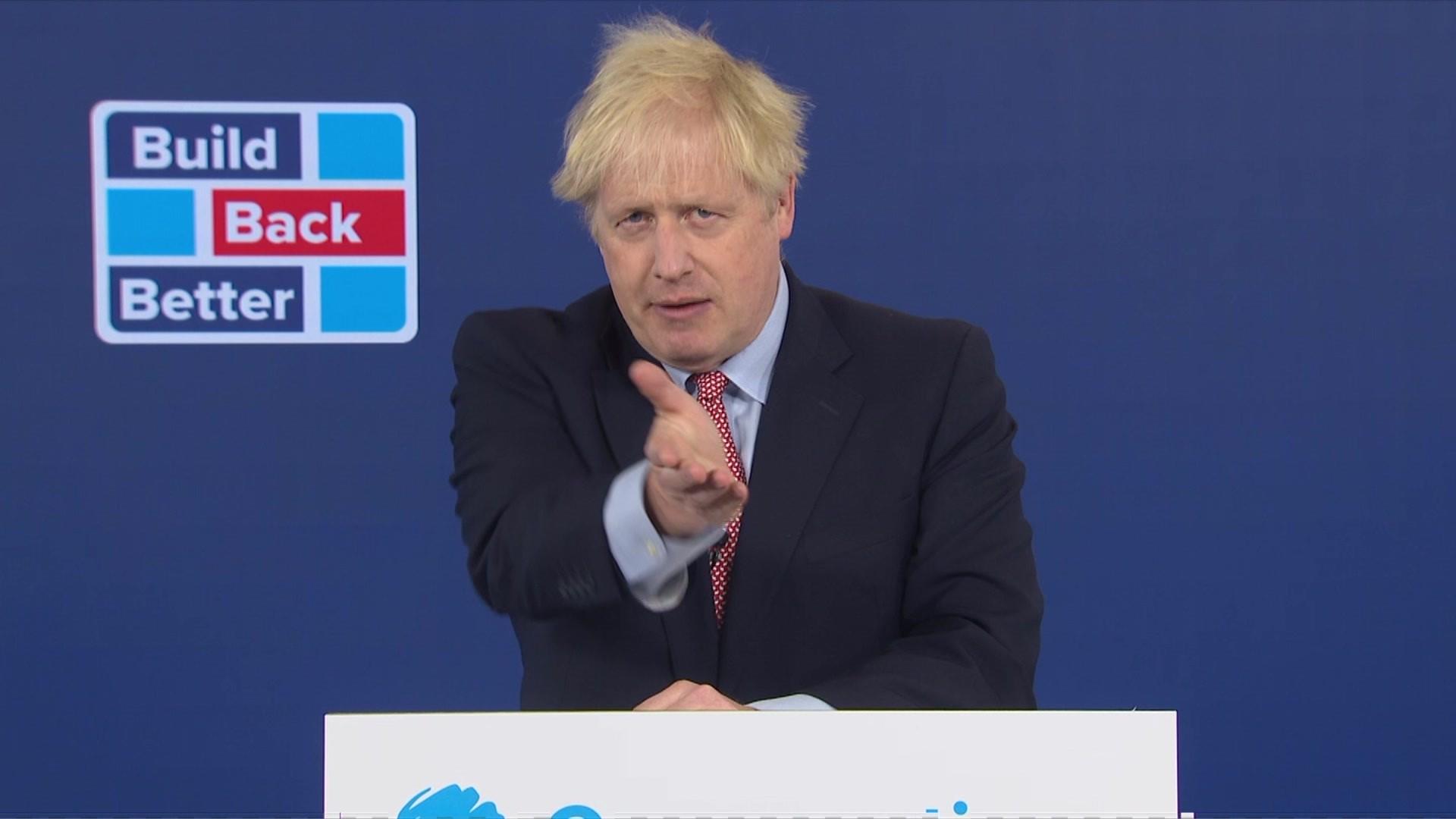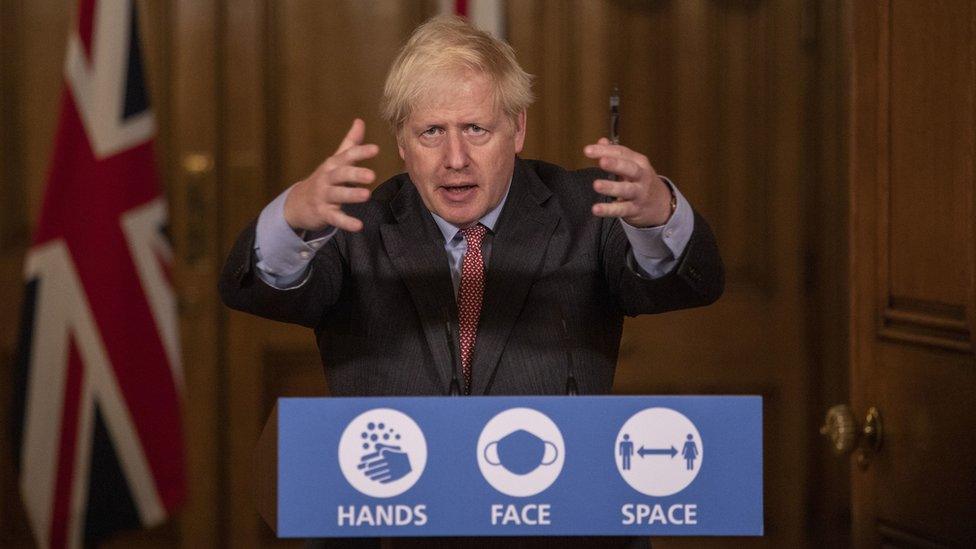Coronavirus: Can Johnson hold out against more restrictions?
- Published

Boris Johnson has been at pains to use every chance recently to say how much restricting our lives bothers him.
Branding himself a "freedom-loving Tory", time and again his reluctance for further clamp downs is clear.
But can he, should he, hold out? It's clear in black and white now that the scientific advisers he used to boast of following think it is maybe even past the time to act.
Minutes from Sage (the Scientific Advisory Group for Emergencies) and the very public view from England's Chief Medical Officer, Chris Whitty, that the national measures aren't adequate made that plain.
And the BBC understands that health officials have been considering putting Greater Manchester and Lancashire into the highest level of restrictions, although a decision won't come on Tuesday.
Crumbling consensus?
The Labour leader's call for a "circuit-breaker" has added to the volume of demand for extra caution - marking the end of the phase of what he used to describe as constructive opposition.
Sir Keir Starmer has been inching away from the broad frontbench consensus on how to handle coronavirus for weeks.
To the frustration of some on his own side, rather than scream down the government's plans, he has developed an attack on the government's ability to handle the situation and to act quickly enough.

Sir Keir Starmer has become increasingly critical of Boris Johnson's performance
But his call for a circuit-breaker means he believes the government has simply got its wrong.
Polling suggests too that there is public desire for tougher actions to prevent a terrible second wave. Some senior figures in government agree.
Yet the balance of desire in the Conservative Party has shifted, with more pleading for finding ways to live with the virus, rather than lock down again. The point has been made time and again on the back benches.
Now a junior member of the government, Chris Green, has resigned in protest at the restrictions in his Bolton constituency, attacking the government's strategy completely. (If you have been paying VERY close attention to politics you might remember it's not the first time Mr Green has quit, and the last time round, Simon Hart, who is now Welsh secretary, was less than flattering about whether it mattered very much.)
No precedent
But many ministers are cautious about anything that goes beyond the regional tiered approach that was announced only on Monday.
And the Treasury in particular is reluctant to budge - fearing the economic savagery of even a short, sharp national period of more restrictions.
As we've discussed before, none of this is easy. There is no precedent for how to handle the situation. Nor is there a parallel universe where the government or MPs can judge what would have happened if they hadn't taken the actions they've done already.
But as cases continue to rise, one Whitehall insider told me that people are preparing for what looks logical on paper - a short period of more intense restrictions everywhere in England.
It's not what No 10 wants to have to do, but to use Whitehall cliché, the discussions are "live" - in other words, it may well happen.
The prime minister may boast about his love of liberty, but he'll be reluctant too to leave himself open to a repeat of the allegations he faced at the start of the pandemic - that government action to protect people's health was too little, and too late.
- Published6 October 2020

- Published2 October 2020

